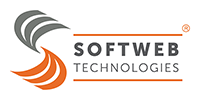Industrial automation involves the use of computerized systems to manage various manufacturing processes and machinery, reducing the need for human intervention. These systems typically handle tasks that are repetitive, mechanical, or both.
Industrial Automation are part of smart factory automation which helps business organizations to automate their manufacturing operations. These helps plant owners and senior management to embrace digital transformation efficiently.
As industries modernize and technology advances, the adoption of automated systems has become widespread, significantly enhancing efficiency and productivity.
This trend has driven substantial growth in the industrial automation market, which reached $127.04 billion in 2018 and is projected to soar to $296.70 billion by 2026, according to Fortune Business Insights.
While these statistics highlight the growing adoption of automation systems, they do not detail the various types of automation systems available. So, how can you determine which automation system is best for your business?
Choosing the right automation system depends on several factors: labor conditions, competitive pressure, manufacturing and assembly specifications, work requirements, and labor costs. Below, we outline the different types of automation systems and the industries where they are commonly used.
Types of Automation Systems
-
Fixed Automation
Also known as hard automation, fixed automation systems perform a specific set of tasks without variation. These systems are typically used in discrete mass production and continuous flow processes. An example of fixed automation equipment is an automated conveyor belt system, which enhances efficiency by moving objects from point A to point B with minimal effort. Like all fixed automation systems, automated conveyor belts perform repetitive operations to achieve high production volumes.
In mining, the role of crusher, is more like a repetitive process. Mining automation helps in analyse the repetitive task of the crusher and its performance.
Manufacturing processes compatible with this system include:
– Repetitive Manufacturing: This allows for limited variations within the manufacturing process, such as in food packaging or the textile industry.
Adopting a fixed automation system, such as automated conveyor belts, along with value-added solutions designed to reduce both time and labor costs during installation, can ease competitive pressure, increase profit margins, and give your business a competitive edge.
By reviewing the types of systems mentioned and considering the relevant factors, you will be better equipped to select the most suitable automation system for your business.
Read more: Top Technology Trends in 2025
-
Programmable Automation
As the name suggests, programmable automation operates through commands delivered by a computer program. This allows for varied processes based on changing instructions coded into the system. However, due to the complexity of programming, the processes and tasks typically remain relatively stable. This type of automation is common in mass production settings that produce similar types of products using many of the same steps and tools, such as in jute mills or steel rolling mills.
Manufacturing processes compatible with this system include:
– Repetitive Manufacturing: This involves producing the same products over a long period and in large batches. These systems can operate with minimal human supervision and are commonly used in industries like automobile and machinery manufacturing.
While the initial setup cost of programmable automation equipment can be high, the continuous and relatively unchanging nature of the processes makes them less expensive in the long run.
-
Flexible Automation
Also known as soft automation, this type of automation is used in computer-controlled flexible manufacturing systems, allowing for greater production flexibility. Each piece of equipment receives instructions from a human-operated computer, enabling tasks to vary significantly with changes in the computer’s code. Flexible automation is typically used in batch processes and job shops with high product variety and low-to-medium job volume, such as in textile manufacturing.
Manufacturing processes compatible with this system include:
– Discrete Manufacturing: Allows for limited variations within the manufacturing process, such as in polymer or the textile industry. This will bring digital transformation in Discreet manufacturing.
– Job Shop Manufacturing: Occurs within set production areas and is more labor-intensive compared to other forms of manufacturing, such as making custom machinery.
– Batch Process Manufacturing: Raw materials move through the production line in batches, with a pause between each step as a batch moves through. This is common in industries like pharmaceuticals and paint manufacturing.
– Continuous Process Manufacturing: Offers consistent processing where the manufacturing process does not change from beginning to end. This is commonly used in food and beverage manufacturing, as well as oil and gas manufacturing.
-
Integrated Automation
Integrated automation encompasses the complete automation of manufacturing plants, with processes managed entirely by computers and control systems, requiring minimal human involvement. Computers handle the design of parts, test the designs, and fabricate the parts. both batch process manufacturing and continuous process manufacturing can apply integrated operation.
Technologies that utilize this type of automation include:
– Computer-aided process planning
– Computer-supported design and manufacturing
– Computer numerical control (CNC) machine tools
– Computerized production and scheduling control
– Automatic storage and retrieval systems
– Flexible manufacturing systems
– Automated material handling systems (e.g., robots)
– Automated conveyor belts and cranes
Understanding the different types of industrial automation—fixed, programmable, flexible and integrated—helps businesses identify the most suitable systems for their specific needs. Each type of automation offers distinct advantages and is compatible with various manufacturing processes, from mass production to custom job shops.
By carefully considering factors such as production volume, product variety, and labor costs, companies can implement the right automation solutions to enhance efficiency, reduce costs, and stay competitive in the market. As technology continues to advance, the adoption of industrial automation will undoubtedly play a crucial role in shaping the future of manufacturing.


